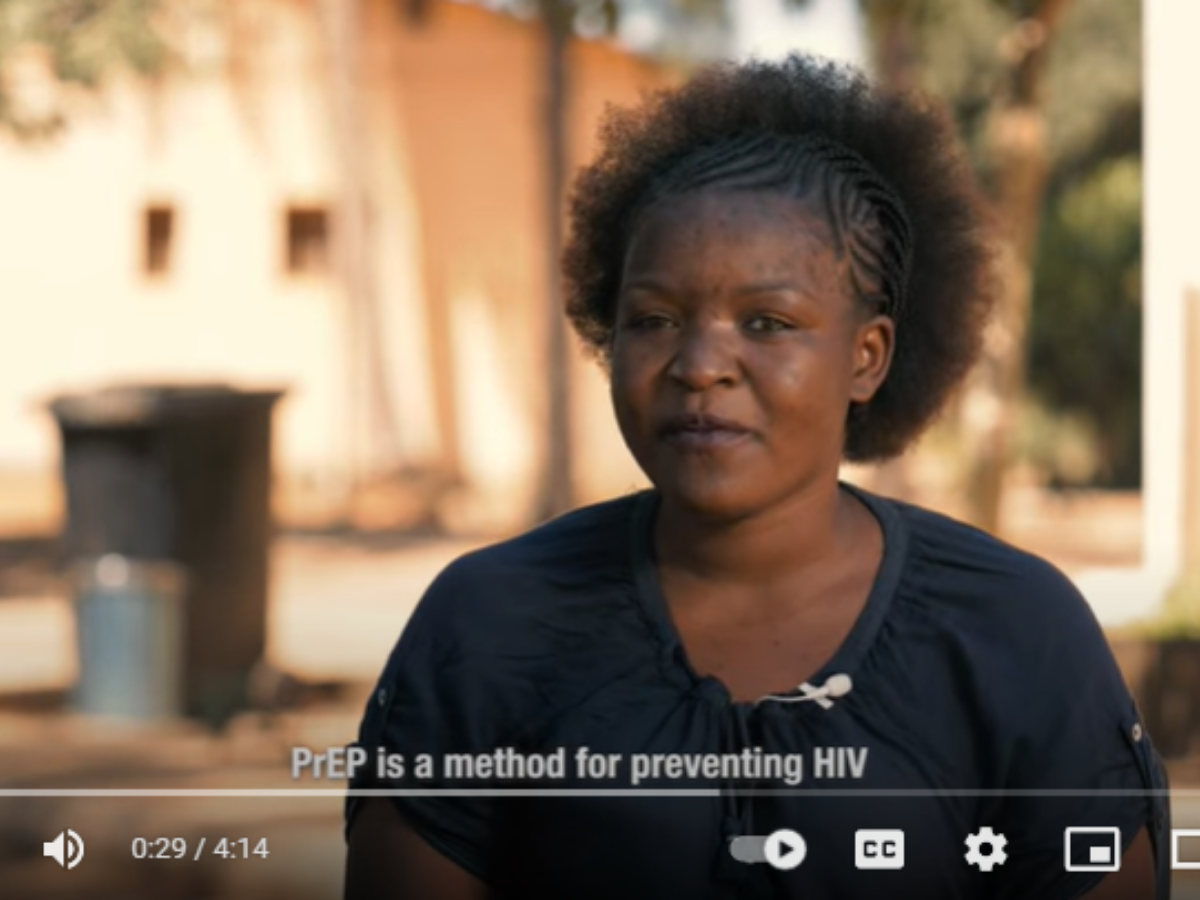ICAP at Columbia University has added a new video focused on the use of PrEP in Mozambique to its Power of PrEP video series. The video explores how communities throughout the southern African nation can use PrEP (pre-exposure prophylaxis) to prevent acquisition of HIV, the virus that causes AIDS.
Earlier installments of the Power of PrEP video series have captured the experiences of key populations who have benefitted from taking PrEP throughout the Democratic Republic of Congo, Kenya, and Nigeria. Two of these videos won honors at the 7th Annual CUGH-Pulitzer Global Health Video Competition, held by the Colleges and Universities in Global Health (CUGH).
Mozambique has the eighth-highest HIV infection rate globally.
“Mozambique has greatly advanced efforts to improve access to HIV prevention, care, and treatment services,” said Mirriah Vitale, MPH, ICAP’s Mozambique country director. “Despite these efforts, in 2020, there was an estimated 98,000 new HIV infections nationally, demonstrating the continued need to scale-up evidenced-based HIV prevention initiatives. PrEP has been implemented in select provinces in Mozambique since 2017, with gradual scale-up to all provinces by 2020. ‘The Power of PrEP’ video includes testimonies from individuals that use PrEP and information from healthcare providers on PrEP as a combination prevention initiative, providing eligibility criteria and how to access PrEP services.”
Young people aged 15-24 years old, pregnant and lactating women, and other select populations benefit most from the use of PrEP. The medication can reduce the risk of getting HIV from sex by about 99% when taken daily, and 74% among people who inject drugs when taken daily.
To raise awareness around how to use and benefit from PrEP, as well as aim to reduce the stigma surrounding HIV, the Mozambique Power of PrEP video features trusted community members, including families, advocating for the use of PrEP.
“This video will be disseminated by the Ministry of Health through diverse media platforms and in collaboration with community, clinical, and communication partners,” Vitale added, “aiming to increase PrEP literacy and demand at community and health facility-levels and support national efforts to reach epidemic control.”
With support from the U.S. President’s Emergency Plan for AIDS Relief (PEPFAR) through the U.S. Centers for Disease Control (CDC), ICAP is working to introduce PrEP to communities affected by the HIV epidemic around the world. To support this lifesaving work, ICAP has developed a package of tools designed to help health care professionals provide PrEP to appropriate candidates in a safe and effective manner. These tools are available free of charge at: icap.columbia.edu/prep.
About ICAP
A major global health organization that has been improving public health in countries around the world for nearly two decades, ICAP works to transform the health of populations through innovation, science, and global collaboration. Based at Columbia Mailman School of Public Health, ICAP has projects in more than 30 countries, working side-by-side with ministries of health and local governmental, non-governmental, academic, and community partners to confront some of the world’s greatest health challenges. Through evidence-informed programs, meaningful research, tailored technical assistance, effective training and education programs, and rigorous surveillance to measure and evaluate the impact of public health interventions, ICAP aims to realize a global vision of healthy people, empowered communities, and thriving societies. Online at icap.columbia.edu








